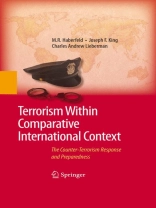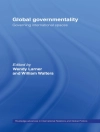The introductory chapter of this book presents the concepts of the bene?ts inherent in the study of comparative approach for an effective counterterrorism response on the local law enforcement level and overviews the inception of the project. Throughout the twentieth century and into the twenty-?rst century, especially after the events of September 11, 2001, the legitimacy of law enforcement practices has been cited as a major concern for international criminal justice. As policing pr- titioners and scholars throughout the world shifted focus from a traditional reactive, crime control stance to the need for accountability mechanisms to ensure the s- port of citizenry in combating crime and terrorism, the democratization of policing was seen as the best mechanism for achieving long-term gains in public order at the same time as protecting human rights. While the need to maintain human rights remains an important issue, balancing these concerns with the important public safety interests of societies is paramount.
Cuprins
Acknowledgments
Chapter 1. Introduction
Chapter 2: The Comparative Approach to Counter-Terrorism
Section 1. Countering Terrorism with Community Oriented Policing?
Chapter 3: Methodology
Section 1. Qualitative versus Quantitative Data Collection
Section 2. Focus Groups
Chapter 4: United Kingdom and Ireland
Section 1. History
Section 2. Terrorism
Section 3. United Kingdom Law Enforcement
Section 3a. Ireland Law Enforcement
Section 4. United Kingdom Field Research
Section 4a. Ireland Field Research
Chapter 5: The Kingdom of the Netherlands (Koninkrijk der Nederlanden)
Section 1. History
Section 2. Terrorism
Section 3. Law Enforcement
Section 4. Field Research
Chapter 6: The Kingdom of Spain (Rieno de España)
Section 1. History
Section 2. Terrorism
Section 3. Law Enforcement
Section 4. Field Research
Chapter 7: The Kingdom of Sweden (Konungariket Sverige)
Section 1. History
Section 2. Terrorism
Section 3. Law Enforcement
Section 4. Field Research
Chapter 8: Republic of Turkey (Turkiye Cumhuriyeti)
Section 1. History
Section 2. Terrorism
Section 3. Law Enforcement
Section 4. Field Research
Chapter 9: Germany
Section 1. History
Section 2. Terrorism
Section 3. Law Enforcement
Section 4. Field Research
Chapter 10: United States
Section 1. History
Section 2. Terrorism
Section 3. Law Enforcement
Section 4. Field Research
Chapter 11: Best Practices – Lessons we Learned
Section 1. Intelligence File
Section 2. Investigation/Interrogation Techniques
Chapter 12: Best Practices – Lessons to be Learned
Section 1. Conclusion
Section 2. Outline of a C-T Training Module
Appendix A: IRB Approved Consent Form
Appendix B: IRB Review Form
Despre autor
M.R. Haberfeld is a Professor of Police Science in the Department of Law, Police Science and Criminal Justice Administration at John Jay College of Criminal Justice in New York City. She was born in Poland and immigrated to Israel as a teenager. Prior to coming to John Jay, she served in Israeli Defense Forces, in a counter-terrorist unit and left the army at the rank of a Sergeant; she then joined the Israel National Police, and left the force at the rank of Lieutenant. She also worked for the U.S. Drug Enforcement Administration, in the New York Field Office, as a special consultant. She holds two Bachelor of Art degrees, two Master degrees, and a Ph.D. in Criminal Justice. Her main interests and expertise are in the area of police training and professional development, with particular emphasis on: police ethics, integrity, leadership, counter-terrorism and use of force in multicultural environments. Her recent publications include a book on police training, titled Critical Issues in Police Training (2002), a co-edited book titled Contours of Police Integrity (2004) Encyclopedia of Law Enforcement, the International Volume (2005) Police Leadership (2005), a co-authored book titled Enhancing Police Integrity (2006) and a co-edited book on Comparative Policing: The Struggle for Democratization (2007). She is currently completing a co-edited book, A New Understanding of Terrorism: Case Studies and Analysis (forthcoming fall, 2008). She also recently co-authored two articles on counter-terrorist response: ‘Proper Proactive Training to Terrorist Presence and Operations in Friendly Urban Environments’, in Understanding and Responding to the Terrorism Phenomenon – A Multi-Dimensional Perspective (2007) and ‘Police Activities to Counter Terrorism: What We Know and What We Need to Know’ (forthcoming Fall, 2008). For the past seven years (2001-2008), she has been involved in developing, coordinating and teaching in a special training program for the New York City Police Department, where she teaches courses in police ethics, leadership and counter-terrorism. Currently, she is also an Academic Coordinator of the Law Enforcement Executive Police Institute for the State of New York, where she oversees the delivery of the training modules and teaches leadership courses. She is involved in two major research studies, one on Use of Force by the Police in 10 different countries, and the other Counter-Terrorism police training response post 9/11, which also involves comparative studies of a number of countries around the world.
Dr. Joseph King received his Ph.D. from CUNY. His doctoral dissertation was on the history, development and centralization of the police in the United Kingdom and the United States. He served for 33 years as the Supervisory Special Agent in Charge of the Terrorist and Middle East Division, US Customs, NY and 2 years as Chief, National Security Section, DHS, NY. He has extensive Criminal Investigative, Undercover, and Court testimonial experience in the European Union and the Middle East. He joined John Jay College in September, 2003 in the Department of Law, Police Science and Criminal Justice Administration. The works published by Dr. King include, The Development of Modern Police History in the United Kingdom and the United States, Lewiston, NY: Edwin Mellon Press (2004). ‘Police Unions’ in the Encyclopedia of Law Enforcement, Sage Publications: Thousand Oaks, CA, 2005. ‘US Customs Service’ in the Encyclopedia of Law Enforcement, Sage Publications: Thousand Oaks, CA, 2005. ‘Observation on Border Interdiction and Ireland’s integration into the EC, ‘ Security Journal, Vol. 11, No. 3, 1998. ‘Reorganization of Irish Customs and the Single Market Agreements of the European Economic Community.’ Paper presented to the Mc Cabe Foundation, Dublin, Ireland, March1998. ‘Case Study of Iraj Bami Rafies (Iranian Weapons Trafficking in the U.S.).’ Transnational Crime: Investigative Responses. Office of International Criminal Justice: Chicago, 1989. ‘The United Kingdom Police Strikes of 1918 – 1919.’ Police Studies, 11, 3, Fall, 1988. ‘Mounting an Undercover Operation’ International Terrorism: The Domestic Response. Office of International Criminal Justice: Chicago, 1987. Dr. King has lectured at the Garda National College, Tempelmore, Ireland and the Command College, Bramshill, UK.
Charles Lieberman is a full-time substitute lecturer in the Department of Law, Police Science and Criminal Justice Administration at John Jay College of Criminal Justice in New York City. He served in the NYPD, with more than 11 years assigned to investigative duties. During his time as a member of NYPD, he was involved in the response to numerous significant events, including both attacks on the World Trade Center (1993, 2001) and the anthrax incident at Rockefeller Center. Charles served as an undercover operative in the NYPD for more than 3 years, and in 1995, trained with the Metropolitan Police in London, participating in their Specialist Operations Training Course, which involved long-term undercover operations. For the last 10 years of his career, he worked in various communities in NYC as a detective, investigating all types of criminal activity, including homicide, robbery, burglary, narcotics, kidnapping, and ‘white-collar’ crime. In 2005, after 15 years, he retired as a detective and entered academia. In 2004, he entered the Criminal Justice Doctoral Program at the City University of New York (CUNY) Graduate Center (GC) and is ABD. He is currently completing his dissertation thesis focuses on the role local communities in the United States can and should play in combating the home-grown terrorist activities. He is expected to defend his dissertation in the Fall of 2008.












